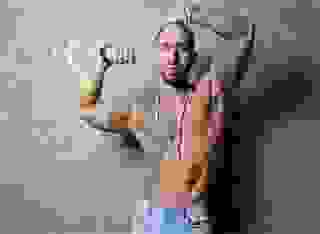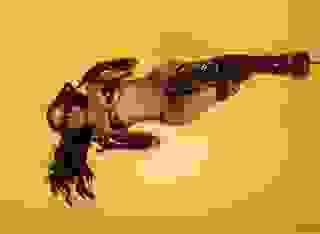- Gay Male
- Fire Down the Valley Ch. 06
Note: You can change font size, font face, and turn on dark mode by clicking the "A" icon tab in the Story Info Box.
You can temporarily switch back to a Classic Literotica® experience during our ongoing public Beta testing. Please consider leaving feedback on issues you experience or suggest improvements.
Click hereCal nosed the mule under the bar as he turned into Heaven. Looking up, he saw the weathered chunk of wood on which he'd carefully carved the word "Paradise" when he'd first come to live with the Cowdens. Looking beyond that, up the length of the valley and then even higher, up the flanks of snowcapped Hahn's Peak, his heart went zing as it always had at the first glimpse of the sun rising in Antelope Gap. Paradise. Looks were deceptive. Neither Paradise nor Heaven any more. He wished he had time to change that sign to "Hell." It had been one of the few things that Lizbeth and Henry had struggled over—whether the name was to be Paradise or Heaven—and even there it was more banter than fight. Paradise it had been—at least until there was no one to argue with Pa; everyone in the valley called it Heaven now, but Cal hadn't bothered to change the sign. He thought now, that it was his way of agreeing with Lizbeth. She always got the short end of the stick living here. She might as well have naming rights. He'd refer to it as that from now on except to those who already knew it as Heaven.
"Don't know what the fuss was all about," Cal muttered to himself—as he so often did as he entered under the name plaque. As he saw the deteriorating farmhouse and the shed, only a third done and he was out of lumber already, bitter bile rose in Cal's crop, and a shiver of fear and dread—and of deep regret for what was unfolding—ran up his spine as his eyes came down from the majestic heights of Hahn's Peak. His attention moved, caught by movement, to the glitter on the slopes of the upper valley that he knew could not be explained by the fingers of sunlight peeking through the gap and glinting off the roof of the Estes place—and then up the dirt track to the weathered wooden, slightly leaning family house. And his gaze moved at last to the old man sitting, leg propped up on a flour barrel, rifle across his lap in the old rocking chair of granddad Isaiah's that Lizbeth and Henry brought all the way out from Pennsylvania on the wagon.
"Damn stubborn old coot," Cal groused under his breath as he cantered the mule, foaming at the mouth and shuddering at the withers after the mad dash up from Hattie Anderson's, where Cal had been helping round up the livestock, what was left of them. It had taken him far too long getting Mrs. Anderson out of the house. And then even more precious time aiding in herding sheep and the old woman alike up the shale-sided shanks of the western valley wall, toward the hidden wagon trail through Mint Creek gap that had been hooked into the road down into Craig just for this possibility. It was a trail that all of the sheep ranchers and homesteaders had carefully kept secret from the cattlemen. Or at least they hoped they had. Cal, in turn, had kept his own route to the east on the slopes of Hahn's Peak as his own secret escape track.
Craig, in the northwest corner of the new state, was a center for the sheep trade. It was about the safest place any of the sheep people and homesteaders could go now until the federal troops arrived—if those troops ever got sent here. For all Cal knew, it could be like the Indians. The government might just leave it for the strongest to do the whittling down and then just come in and put its stamp on a deed already done.
Cal tried to stare the old man down as he approached the porch. Riding the fences of the land he'd had plowed, thinking he might switch over to farming, and at his age. And his feeble mental condition. Just like Cal had told him not to do when he'd gone down to Hayden. Henry had done that while Cal was at the Double O ranch. Cal would never have let Henry go out to the fenced field if he'd been here. Of course Henry would break a leg. And at the thought of the word "fences," the bile at last surfaced, and Cal leaned over and spat it out on the dusty dirt that had once been his playground. Fences. It was all because of the fences. And that Homestead Law. They'd all managed before that—not all that fine, but they'd never come close to anything like today.
Cal was beyond the end of his rope on any of this business.
"Hope you're not thinkin' of sittin' there and restin' that mule all day, son." The voice was raspy, old—rough, but his foster father's affectionate tone, not the one he used when he wanted to get your attention real fast. The dust of forty years of hard scrabbling sheep herding in his throat.
"Sorry it took so long, Pa. Mrs. Anderson had to be pulled out of there clawing and scratching, the old biddy."
"Always did like that Hattie," Henry said with a low chuckle. "That girl had spunk."
"Pa, don't you think it's time to . . ." The mule shied and Cal had to reach a soothing hand down on its neck to calm it. The mule's nose was twitching, not liking the scent on the breeze wafting down the valley, bringing images of smoke and heat—and fear and death.
"The widow Thornton down at the schoolhouse will be needing help, Cal. That passel of young ones she's got are probably running in all directions. And best you get a move on. Not much time now." This caused them both to look up the valley. Pockets of flame—mere small bonfires from their perspective—dotted the sides of the valley slopes. They both knew better, though. The Estes place. It hadn't been sunlight.
"The widow Thornton? The schoolhouse and the orphans?" Cal answered with a snort, tearing his eyes from what he didn't want to see. "They wouldn't. Surely they couldn't—"
"Never can tell. Not when blood is on the rise like it is today, son," Henry responded. He grimaced and loosened his grip on the rifle he had been holding tightly across his lap. Then he reached out and rearranged his leg on the flour barrel top to a more bearable position.
"Damn cattlemen," Cal growled. The mere thought raised more bile, which, leaning out from the side of the mule, he spat out on the ground.
"Don't curse them, son." Henry's voice was stern. "And not in hearin' distance of the house. Your ma never could abide no cursin' this damn close to the house. No, cattle and fences don't mix. The cattlemen always had a point there."
Cal had very reason to curse the cattlemen, but that wasn't something he was going to tell Henry about. "Then fuck those interferers down in the capital," Cal persisted. He'd kept it in too long. He was to the bursting point.
"Them neither, Cal. They done what they thought was best."
"But why, Pa?"
"Sometimes there ain't a good answer to the question 'why,' son. Farms need fences just as much as cattle and sheep need open range. And the cattlemen claim the sheep shear the pasture too close for it to be any good to cattle. The three just don't go together. And there're more folks movin' in from the East all the time. And they have to eat every day; they can't wait for the end of a cattle drive to get their next meal. They need the farms and lamb to eat when the cattle are needed to produce cash. Cattle have been king around here, but time and need bring changes no matter what we like or don't like. Passin' a law requiring a homestead claim to be fenced just gave point to the inevitable. If anyone is to blame for that, it's the claim jumpers. The cattlemen knows the fences change the balance. It's man's curse to think he can fix everything. Sometimes life is just too big for mere man."
"Where are John and Harv?" Cal asked, wanting to change the subject—wanting to change everything, in fact, but helpless in the wanting.
"I sent them out an hour or two ago. Up over the Mint Creek divide."
"Well, I'd best go around and fetch the wagon, and then we'll go on to the schoolhouse and be on our way after we gather up Mrs. Thornton and the children," Cal said after giving Henry a hard look.
"I sent John and Harv in the wagon, son. They needed it for Lizbeth's fancies."
"Lizbeth's fancies?" Cal was incredulous, nearly overcome with frustration and powerlessness.
"She'd never forgive me if those got scorched."
That had done it. The flash of an image of the unspoken future. Actually putting reality in that one word, "scorched." Cal's shoulders went down in defeat and tears welled up in his eyes. There was no hiding, and the options were all floating off in the ash-scented breeze. It was like Henry wanted to slam shut all of the trap doors.
The two faced off there, hopeless and seemingly helpless for the longest moment—Cal barely hanging onto his perch on the increasingly skittish mule and the old man motionless in his rocking chair, grimacing at every twitch in his shattered leg.
The moment was burst when Cal saw Henry's gaze move off his face and to the left over his shoulder, up the valley. Cal turned to see the unmistakable flicker of flames in the uncomfortably near distance. "The Greiners?" he whispered, denoting a sheep ranch not more than five miles south of the schoolhouse.
"I reckon so," Henry answered in a dry voice.
Cal slid down off the mule, tied the reins around the porch railing, and mounted the creaky porch stairs, headed for Lizbeth's rocker on the other side of the doorway from where Henry sat. When he'd come off the horse, he'd pulled his rifle out of the saddle holster and carried it up onto the porch in the crook of his arm.
"What are you doin', son?"
"I figure I'll sit and rock with you for a while, Pa."
"Don't you sit down there now. I asked you to go help Mrs. Thornton and her children. You never disobeyed me before. Don't make this the first time. And take the mare. That mule there looks spent—just like I feel."
"But the mare's yours, Pa. You've never let anyone else ride her after Ma—"
"Until now. I don't think Lizbeth would want her here either. The mule's fine with me now."
Both stubborn as all get out, Cal thought. He had never heard such a deep and trembly voice from Henry before. Henry had always been in control. A rock.
"Pa . . ."
"Don't you argue with me now. Lizbeth would never forgive me if I let you . . . if we didn't do this charity for Mrs. Thornton and her children. Don't forget who saved you and raised you well enough for us to take you."
Cal was beyond exasperation. "Lizbeth's dead, Pa. She's been gone nearly these three years now. She's dead and buried up there in the cottonwood grove, Pa."
"Don't . . . you . . ." Henry was angry now, angrier than Cal had ever seen him be. But as sudden as it had come on, it was just as quick to dissipate, and Cal watched his foster father age twenty years before his eyes.
"She's not dead to me, son. Lizbeth's alive to me. She's more and more alive to me with each passing minute . . . now. And more to the point, she's alive in you. Just because you didn't come out of her don't mean that she didn't put all that was good in her into you too. And I want it to go on bein' that way."
"It ain't worth it, Pa," Cal persisted. "This little piece of scrub here in this valley just ain't worth it."
"All of our lives, Lizbeth and me worked hard to get to heaven son, and this is it. This is our heaven. I'll not be cursin' or spittin' in the wind, but I'll not be givin' up on Heaven, either. Don't deny me this dignity . . . or bring more grief to me than is necessary. Mrs. Thornton needs our help—your help. And time is runnin' out. Now, you go on to the barn and bring out the mare. I suggest you not try to take Mrs. Thornton by the canyon road toward Dixon. There's somethin' nasty waiting for any folks trying to come out of the canyon—just like there is at the southern mouth of the valley. And you can't use the hidden road most of them took across the western ridge to Craig either."
"Why not?" Cal asked.
Henry lifted his rifle barrel and pointed it toward the western ridge. "Looks like the burnin' has already come past where that trail starts over the ridge. Best way I can think of is straight up Slater Creek to Milo Mather's mill. I don't think they'll go that high. But best keep on movin' from there. There's a logging trail from there meetin' up with the new trail over the gap toward Hayden. Go on now. Make me proud, as I know you can."
Cal knew all about that logging trail, and Henry knew he did—when Henry was all here. But Henry was slipping away from Cal.
It was the hardest tug Cal had ever had on the commandment to honor your pa and ma for him to bring out the mare, guide her under the Paradise sign, and not look back to catch the tears in Henry's eyes.
Just as Henry had thought, the widow Thornton was beside herself with useless action when Cal got to the schoolhouse—not that she would be useless in her own action, but the children had no concept of impending disaster and were giving her fits. But just seeing salvation coming down the road on his mare was enough to put her action to better use in gathering up the children and figuring out at last how to yoke the old gelding to the wagon.
"Here, let me help you up into the wagon," Cal was saying as he heard the rifle shots echoing off the mountain walls and noticed Mrs. Thornton's attention go up the valley and her eyes open wide.
"Isn't that . . .?" she muttered in a tremulous voice.
Cal looked around, and he almost collapsed against the wagon at the sight of the flames rising above the knoll just over two miles away. Since his youth he'd been able to locate his family's homestead from any point he happened to be standing in up and down the valley.
"Yes," he managed with a clutch in his throat. "I think that's Heaven." God, he thought, they are coming down from the north too. He must have made it on the road just before they got to Henry's place.
"Heaven," Mrs. Thornton said, drawing the word out long as if it was the last word she expected to be hearing that day—which, no doubt, it was. And then they both took in the full view of the valley stretching out to the south of them, from the sun on the rise to the east, its radiant beams glittering off the snowcap of the majestic Hahn's Peak and then sinking down into the deceptively beautiful, green valley, its slopes and undulating floor dotted with a hundred bonfires of the dying homesteads.
"I had never thought I'd actually see it," Mrs. Thornton said in a small, awe-filled voice. "But there it is, yes. Heaven. Heaven descending into Hell on earth. But why?"
"Why?" Cal asked, his voice choked with tears for the paradise that was lost. "A stubborn old coot once told me that sometimes there isn't a good answer to the question 'why,' Mrs. Thornton. Sometimes life is just too big for mere man. I reckon he knew what he was talking about."
"I just don't know, Cal," she said. "It makes a person just want to sit down and let it wash over them."
Cal's thoughts went back to Henry. That's exactly what he'd done.
Mrs. Thornton must have read his thoughts, because she then said in a voice with a catch in it, "Henry?"
Cal gave her a look that told her all she needed to know. Then the two boys of the six children they had in the wagon began scrapping and this brought Cal back into the world.
Mrs. Thornton staggered back and she leaned into the tail of wagon, her shoulders going down in defeat. Cal gently reached over and pulled her back onto her feet.
"You've got these children to get to safety, Mrs. Thornton. You've taken care of them so long already that it would be a waste not to get them out of here. Up in the wagon with you, now, and let's head on up the slope to Mather's mill."
Half way up the track to the mill, they met Frank riding hell for leather down from the mill. He pulled his horse up short a few yards from the wagon.
Cal's hand instinctively reached for the stock of his rifle where it was sheathed at the side of the saddle. Frank equaled cattleman in his brain. But he just couldn't do it. If this was it, he wasn't going to fight.
But Frank sat there on his horse, not pulling his rifle out either.
"Frank. I thought you—" Cal started to say.
"It's just not right, Cal. This just ain't right. I came to see what I could do."
"We're trying to get these children out of the valley," Cal said. "This doesn't have anything to do with them."
"Then let's do it," Frank said, turning his horse around to move back up hill.
They made it up past the lumber mill camp and onto the logging trail before Frank's horse reared up, and he started to pull his rifle out of his saddle holster.
Cal almost was too late in raising a hand and crying out. "Wait. Frank! Don't. He's my campmate."
"Your what?" Frank exclaimed. Although the declaration was enough to keep him from pulling the rifle—at least for now. It helped that Ilesh looked like he wasn't carrying a weapon of any kind and he had an arm in a sling.
"I was raised with him among the Arapaho. He is as one with me. I can't explain it any better."
"Jivin," Ilesh called out from the opening to the Arapaho path up the mountain from the logging trail. "You're safe. I was coming for you."
Despite everything that was happening, Cal's spirit soared. He wasn't alone. Two men who meant a great deal to him had come for him.
Mrs. Thornton had thrown herself protectively over the children when she'd first seen the Arapaho brave half hidden in the trees, but she relaxed noticeably at Cal's explanation of who Ilesh was, fully aware of his story and having heard that all was not a trial in the life Cal had led in the tribe.
"I told you down, when we were in the lean-to, that I had been raised in my first years in an Arapaho tribe, Frank. Ilesh is my Arapaho campmate. All of the children of the tribe are raised together and grow close to each other. But what has happened to you, Ilesh? Your arm."
"It's the shoulder, Jivin, and it is healing. It was a clean wound. I was shot from a distance on the mountain near to where you left it to travel over the plain to the town you were going to."
"You followed me. I told you not to."
"I had to know you were safe."
"The new grave at the camp," Cal said. "I thought that maybe—"
"I came into the camp and found the old man had died. I had visited him before and we had become friends. I buried him."
"Ah," was all Cal could say. "But your shoulder. How could you—?"
"I didn't say it was easy," Ilesh said, with a bit of a twinkle in his eye. "It had to be done." He changed the subject. "Is it safe for you to go beyond the mountain?"
This was the question that had plagued Cal the whole time since they had started up the mountain. Even following the logging trail that met up with the track going toward Hayden would mean they'd have to go over Double O land. And Hayden itself was Double O territory. Savage's men were busy in the valley, but they would be going back to the Double O and to Hayden eventually. Would Cal have time to move on? He turned and looked to Frank, who shrugged and looked worried.
"We could chance it." Frank said. "Leave this woman and the children in Hayden and then go farther west together. Surely they wouldn't harm a woman and children in Hayden. They aren't of either the sheepherders or the farmers. We might have time, but . . ."
"But if they intercepted us and I was with you, no one in the group would fare well, would they?" Cal said.
Frank just looked at him and shrugged.
Then Ilesh spoke gently, "They might be better just with this man, Jivin. You can come up the mountain with me. You would be safe with me, at least for now. And this woman and these children would be safer from here without you."
Cal looked at Mrs. Thornton now. "It wouldn't be just me and the children, Caleb," she said. "You are one of my children too. Your safety is just as important to me. Go with your Arapaho campmate."
"You need to decide," Ilesh said quietly. "They may not be content to stay in the valley. They may come up the mountain looking for stragglers such as these."
Cal made his decision. He hoped that Ilesh wouldn't know how painful the decision was for him until later, when they were alone. "Take them, Frank. But when you get off the mountain, don't turn toward Hayden. None of you will be safe there. Head east for Steamboat and then take them all the way to Denver."








